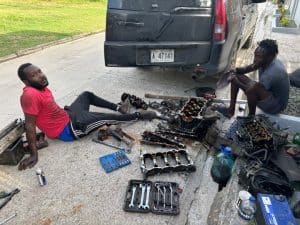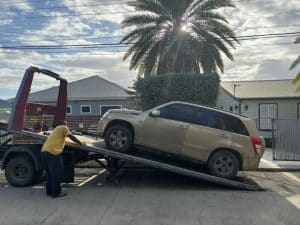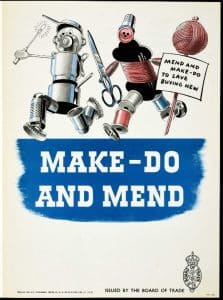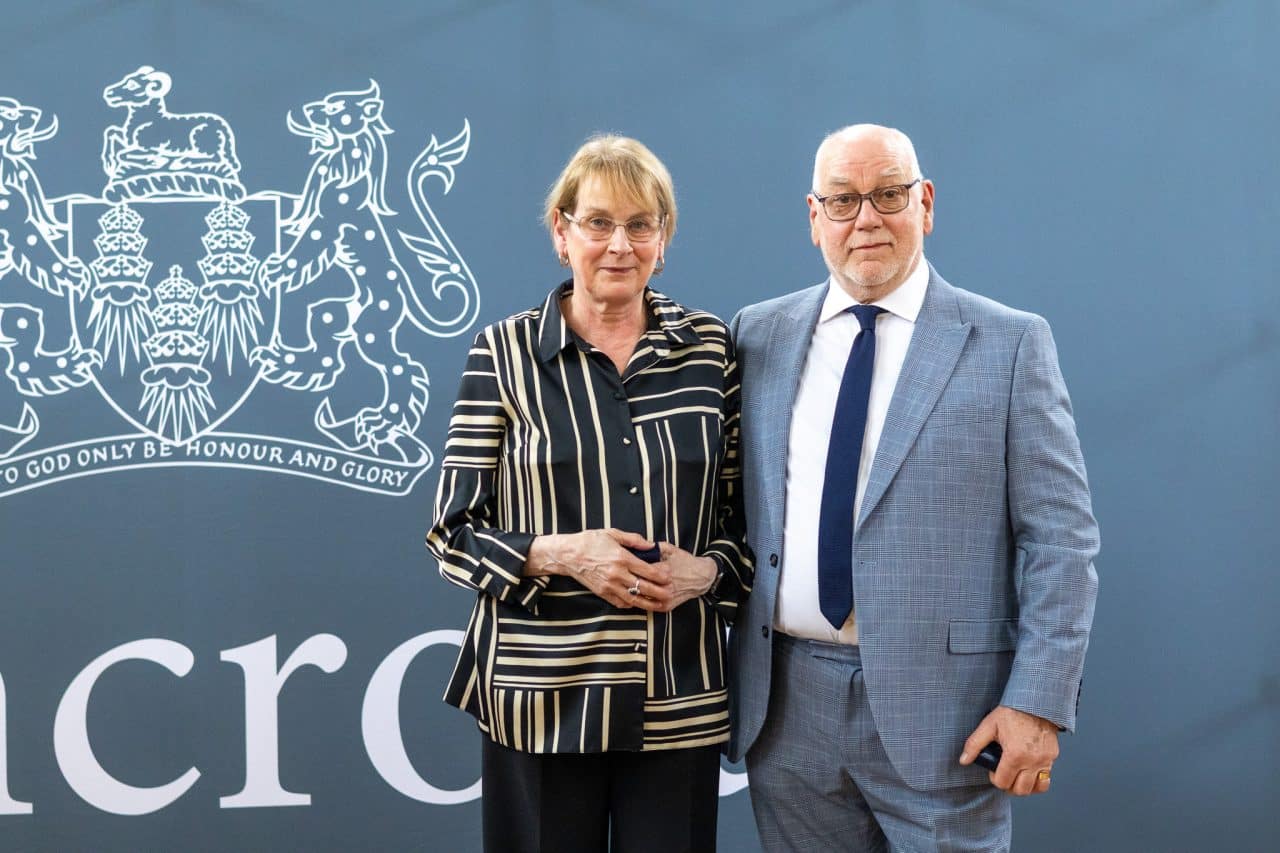Assembly Insights: Curiosity
Assembly Extract from Mr Alex Frazer, Head
Presented on Tuesday 22 April 2025
Good morning, and welcome back to school for the start of the Summer term.
For the Upper Sixth Formers among you, the start of the very last term of your school careers. And this is actually the last assembly that the Upper Sixth and Fifth Form will attend before going on study leave – if you don’t know, that’s the period of time when pupils taking A-levels and GCSEs stop going to lessons, focus on the final stage of their revision and come into school to sit their exams. So, I hope everyone will join with me in wishing the Upper Sixth and the Fifth Form the very best of luck for the challenges that lie ahead over the next couple of months. Let’s all give them a round of applause to encourage them.
Now, as you know, we have six school values which drive your education at Bancroft’s: in no particular order, they are: Curiosity, Kindness, Integrity, Courage, Balance and Excellence. As well as guiding you through your years at school, it is our hope that you take these six values with you when you come to leave – and that you use them to help you live your lives well and to the full in the years beyond school.
What I want to talk about this morning starts with the school value of Curiosity. Some of you may know by now that my family and I are enthusiastic travellers, and that desire to see and experience as much of the world as we can is definitely driven by an intense curiosity about how other countries near and far look and feel, how cultures express themselves, how societies work, what people in other places believe and hold dear, and why all of that might be the case – and, crucially, why it is different to what we understand of our lives at home.
I’m not going to claim that we’ve been to the most obscure, difficult or isolated corners of the globe, but I am pleased to say that I’ve made it to every continent apart from Antarctica – and equally pleased that this hasn’t been done by secluding ourselves in five-star luxury hotels or depending on guided tours, but by travelling light with rucksacks, staying as much as possible in fairly simple accommodation, getting ourselves about in hire cars, buses and trains, eating local food and doing our best to mingle in everyday life. I love witnessing how people in other countries live, and in many respects I get as much enjoyment from shopping for supplies in a foreign supermarket or riding on public transport as I do from visiting a famous landmark. The Rio de Janeiro metro system is a particular favourite, by the way.
Over Easter, we had a memorable lesson in societal differences and what drives them, from an unexpected situation we found ourselves in on the beautiful island of Antigua in the Caribbean. Our grown-up nephew Alfred and his wife Charlie are currently living there for a couple of years – he is a boatbuilder and she is a Physics teacher – and so we went to visit them. If you’re a fan of the reality TV series ‘Below Deck’ you may have a certain impression of Antigua, but the life Alfred and Charlie lead there is a long way from that level of flashiness. To enable us to get about the island, Alfred kindly lent us his car: this 20 year-old Suzuki Grand Vitara 4×4 with over 200,000km on the clock. It may not look like much, but owing to scarcity value on the island, second-hand cars are much more expensive than the equivalent vehicles would be here.

After a week with us, Alfred and Charlie had to go back to England, so we were left to our own devices, with the Suzuki for company. Sadly, the Suzuki, having led a hard life, turned out not to be in the best of car health, as one day the oil leaked dramatically out of the engine through a worn-out seal.
In the same situation here in the UK, the unfortunate motorist might ring the AA and have the car taken off to a garage where it could be repaired at great expense, likely using new parts. Alternatively, the motorist might decide that the cost of repair was unwarranted, send the otherwise still useful car off to be scrapped, and start again with another one. Either way, there is a convenience and a consumerism to the solution – both entirely typical of the approach that we tend to adopt in what is sometimes termed the throwaway society, here in richer parts of the world.
In Antigua, where most citizens are not at all wealthy, a different normal is in play – an approach to solving this kind of problem which involves ingenuity and sustainability. As luck would have it, the car had gone wrong pretty much where we were staying, so we weren’t stranded by the side of the road. We were put in touch with a local mechanic called Shane, who came over, just looked and listened to what was left of the engine function, and diagnosed significant damage to the crankshaft and some of the connecting rods. The mechanically minded among you will appreciate that these parts are in the heart of the engine, and without them the car simply will not run.
Next, Shane got on the phone to some scrap merchants and tracked down the parts he was going to need to repair the Suzuki’s engine. Second-hand parts, out of a similar car or cars that will have been scrapped following an accident. On an island like Antigua, though, with little by way of car dealer infrastructure, you would have to order new parts to be shipped from overseas – and pay, not just for the parts to be sourced in foreign currency, but also hefty import taxes once they arrived weeks or months later. That reality makes the local trade in second-hand parts an absolute necessity, in terms both of cost and practicality. By comparison, in the rich world, we’re more likely to call this approach “upcycling” and see it as quite unusual, if trendy in some circles.
Anyway, the next day Shane was back, with the parts and a friend to help him, and they set about stripping down the engine. If you’ve never seen the engine taken out of a car and in pieces, the complexity of it all is pretty astounding – but Shane and his mate knew what they were doing. I’d love to tell you they had the car running that afternoon but, because they knew what they were doing, they realised more replacement parts were going to be needed to finish the job – and more time would be needed to track them down. That realisation brought with it another lesson in island life – patience and adaptability.

Shane was not going to be able to get the parts until after we left to come home, so the car got picked up by what they call a wrecker truck and taken to his place. We spent the last few days of our trip enjoying the beach and other places we could get to on foot.

The good news is that the Suzuki is now back up and running. In a place with very limited public transport, Alfred can get to work, and the car has a new lease of useful life and doesn’t need to be scrapped. By re-using parts that already existed, the environmental impact of the repair is lessened: no need to ship parts from overseas, no contribution to the manufacture of brand-new replacement parts, so no consumption of the earth’s resources that would otherwise be used in those processes.
This episode has made me wonder about the validity of much of our rich-world consumerism. Should we throw our things away when they start to go wrong, or should we instead put more effort and imagination into repairing them? In the Second World War, British households were encouraged by the government to avoid buying new and “Make Do and Mend” to save on resources which were needed for the war effort. Today’s environmental imperative to act sparingly is just as compelling, if not more so.

Do we really need as many new possessions as advertising and gimmicks like Black Friday tell us we do? Should we be as susceptible to the appeal of phenomena like fast fashion, buying almost disposable clothes whose manufacture and transportation have a high environmental cost, even if the price to buy them is low? Shouldn’t we consider investing in fewer, higher-quality pieces that are made to last? Or even cultivating our own style by seeing what we can find second-hand in charity shops?

I’ll leave you to think about it.
In other news…
I would like to pay tribute to two members of staff who absolutely qualify, if anyone ever did, for the title of Bancroft’s Legend. For 36 years, Mr Dave Bish has managed our facilities and buildings, keeping so many practical aspects of the School running smoothly for the benefit of pupils and staff alike. And for almost as long – 31 years – his wife, Mrs Pat Bish, has worked in the Catering Department – many of you, and many Bancroftians who have gone before you, know her well as the undisputed boss of the Sixth Form Café. Mr and Mrs Bish, Dave and Pat, are bringing the extensive Bancroft’s chapter of their lives to a close, and preparing to start the next one. Mr Bish will be around for a few more weeks, but Mrs Bish is leaving imminently. Let us all join together to say thank you for everything they have contributed to the School and to the wider Bancroft’s community, and to wish them both a long, happy and healthy retirement.




